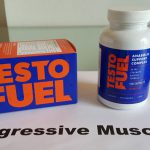
You lose 1% of your testosterone levels every year after you turn 30. This is a proven fact.
This means that by the time you turned 70 you will have very little, if any testosterone left. This is also the age that many people start to feel old and suffer from poor health.
Are the two events connected?
It is certainly interesting to note that you have a much higher chance of having low testosterone levels if you suffer from diabetes, lung disease, obesity or even hypertension.
Recognize the Symptoms
There are several classic signs that you have low T levels:
- Reduced energy levels
- Poor libido
- Inability to get an erection
- Losing muscle & strength
- Increased body fat
Low sex drive is probably the first thing you’ll notice, but the rest is sure to follow unless you plan to do something about it.
Understanding Testosterone Levels
One of the biggest issues is the range in testosterone levels which are considered acceptable.
For example, you could be 40 with a T level of 250. This is at the low end of the normal level.
Normal is defined as anything between 250 and 836.
Effectively your doctor will be telling you your testosterone level is okay even though you have the same amount of testosterone as a 70 year old man.
At this age your level should be closer to the top end of the range. If it isn’t, it’s time to look at boosting your T levels.
How Testosterone Levels Relate To Health
It’s not just an unfortunate coincidence that your health starts to suffer as your testosterone declines.
The fact is that testosterone is essential to men and women for the reproduction of cells. Without adequate testosterone your body will not repair cell damage as fast as it should.
The result is vulnerability to a huge array of degenerative diseases; including cardiovascular issues.
But that’s not all!
As T levels decrease your estrogen levels will increase. This is the female hormone.
It encourages fat storage which becomes a vicious cycle; encouraging more fat storage.
The Role of Xenoestrogens
These are compounds that mimic estrogen in your body. The more of them you consume the higher your levels of estrogen!
Xenoestrogens are in many prepared foods, drinks and even household chemicals. You are virtually constantly exposed to these compounds; which encourages you to store fat and decreases your T levels.
You need more testosterone to fight this estrogen dominance and retain your good health.
The Role of Your Doctor
You would think that your doctor would highlight these issues to you. Unfortunately they won’t.
This may be because they believe your T levels to be within the normal range or it might be a matter of looking after their profits.
Whatever the reason it is important that you take care of your own T levels. It is easy to have your levels tested privately via the post.
You can boost your T levels in the following ways:
- Adding a natural testosterone booster to your diet.
- Using supplements that include vitamin D3, Zinc and Magnesium.
- Eating spicy foods.
- Ordering a prescription testosterone liquid or cream.
It is worth noting that you can order this online without a prescription. It is limited in size and must be for personal use.
The bottom line is that the moment you start to feel unwell and you’re getting past 40 you should be looking at your testosterone levels. It will improve your health and quality of life.








Leave a Reply